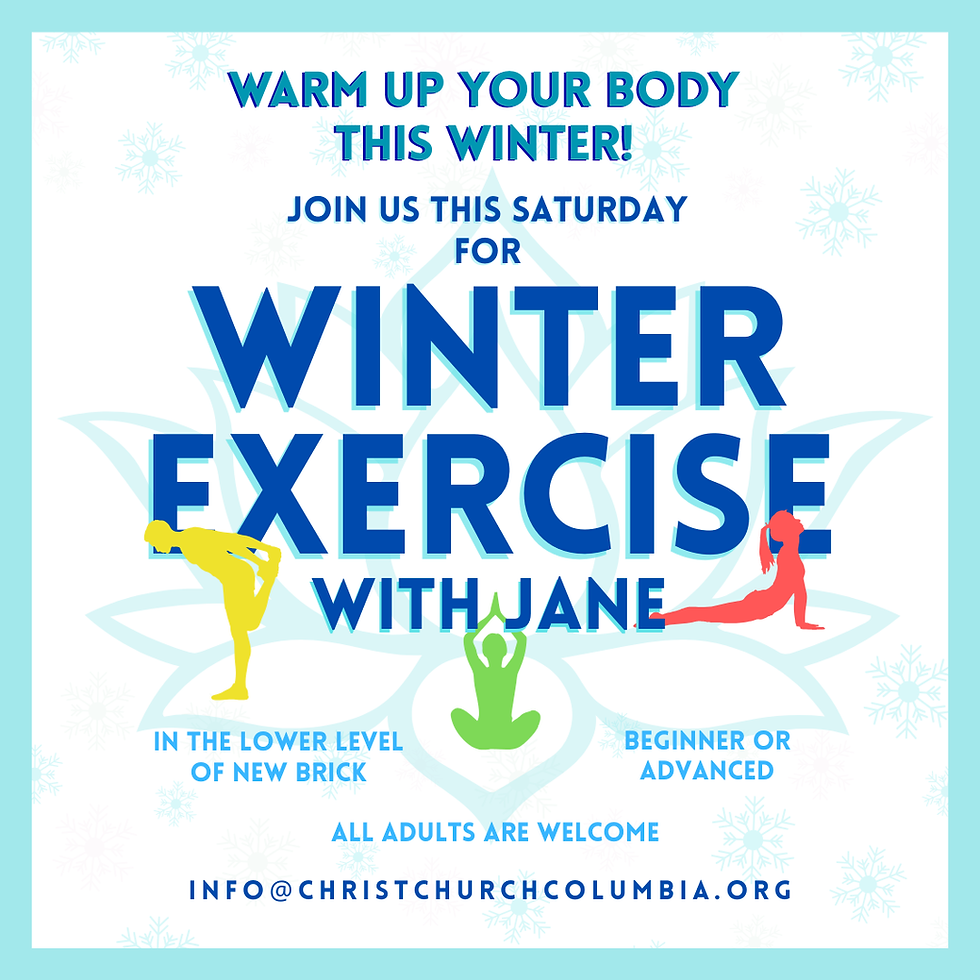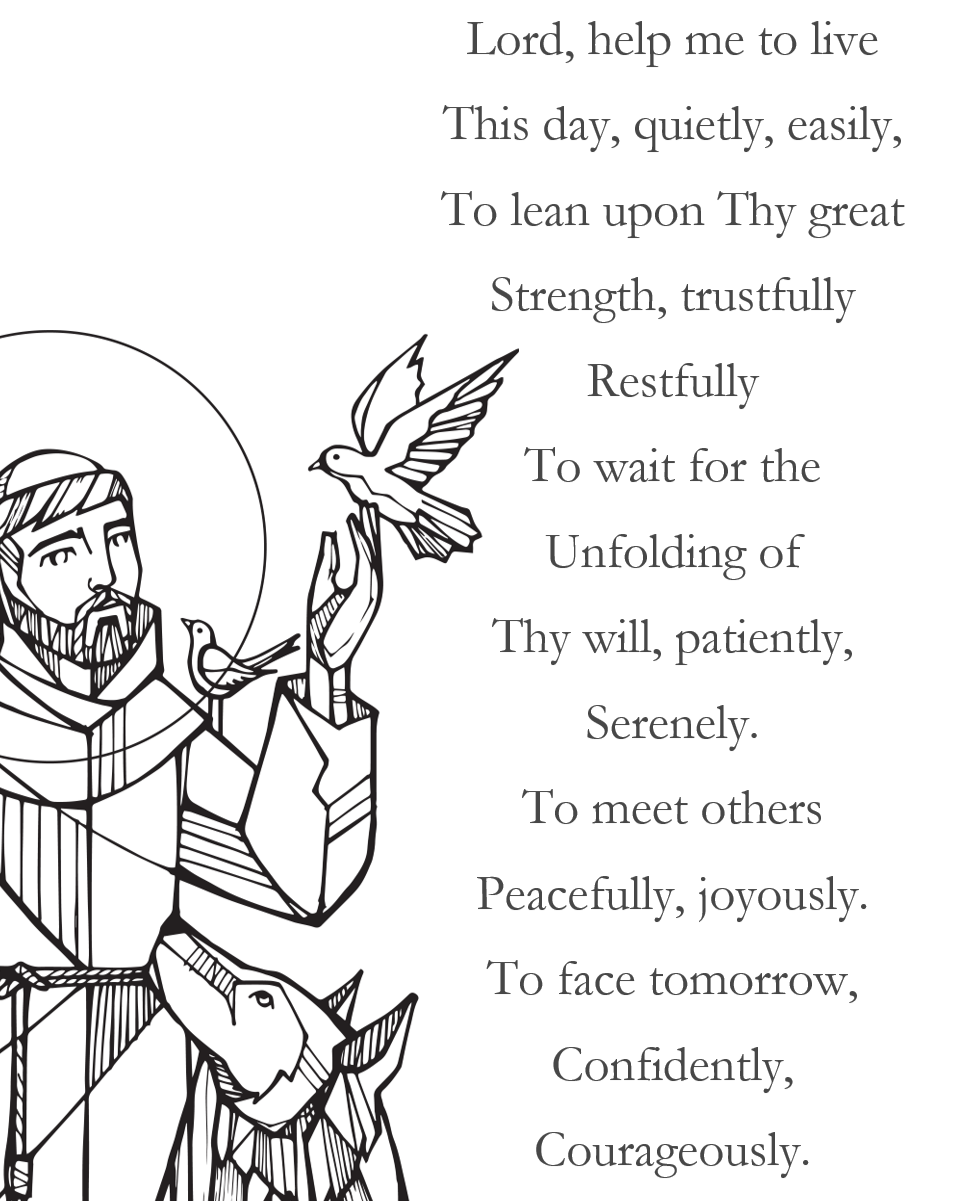Wretchedness
- Christ Episcopal Church

- Jul 14, 2023
- 4 min read

St. Paul poses this question: Wretched man that I am! Who will rescue me from this body of death? It may have been an echo from Isaiah’s earlier statement, that our righteousness is like filthy rags. The point of the prophet’s words is that our own righteousness isn’t enough to save us. Paul understood that he couldn’t save himself, and there is no way that we can also save ourselves. "I do what I don’t want to do," he pleads. How is that even possible? "I live a conflicted life," he seems to say. We all live conflicted and unsatisfied lives - we want to be saved from the life we don’t want to live.
A former rector always cautioned that we don’t always do what we are supposed to do, that we fall way too short. Like Paul, I wonder why. But he (Paul) knows why. Although he delights in the law of the Lord, the tragedy is that we all lose the battle of doing what we don’t want to do because we are captive to the sin that dwells within us. Wretched man that I am! Who will rescue me from this body of death?
There’s a story of David, a man who was after God’s own heart. He was a man who sought God and delighted in the law of God. One afternoon, while his soldiers were fighting on his behalf, he was walking on his rooftop when he saw Bathsheba taking a shower. He quickly sent for her and began an affair with her. But when Bathsheba told him that she was pregnant, David had her husband Uriah killed on the battlefield.
The prophet Nathan visited the king and shared with him this sad saga of two men who lived in a certain town - one rich, and one poor. The rich man had a very large number of sheep and cattle, but the poor man had nothing except one little ewe lamb who was like a daughter to him.
A traveler visited the rich man, but he refrained from taking one of his own sheep to prepare a meal for the traveler. He took the ewe lamb that belonged to the poor man and prepared it for his visitor.
When David heard the story, he was burned with anger against the rich man and said to Nathan, “As surely as the Lord lives, the man who did this must die! He must pay for that lamb four times over because he did such a thing and had no pity. The prophet Nathan looked at him with pitiful eyes and announced to him, you are the man. Wretched man that I am! Who will rescue me from this body of death?
Remember, David was a man after God’s own heart. And you wonder why, and how, a man like David would find himself in such a situation. David reveals to us what we all know about ourselves - we are so quick to point out what is wrong with others and even offer our judgment over their actions, but we are slow to point out what is wrong with us and pronounce judgment on ourselves. But the reality is that we are all held captive by the same sin that dwells in us and I often wonder how we can get out of this quagmire.
St. Augustine, one of the early Church Fathers, once wrote these powerful words, ones which sum up our restlessness. "Our heart is restless until it finds its rest in thee." In other words, nothing in this world will give us the rest and the peace that only God can give. Nothing in this world can rescue us from the power of sin but God. Wretched man that I am! Who will rescue me from this body of death?
For those of us who watch a lot of television, one thing we can agree on is the number of commercials. They take a break and all we see is one commercial after the other. We watch commercials advertising relief from allergies, body aches, depression, hair that won’t comb right, arthritis pain, Type-2 diabetes, insomnia, HIV/AIDS, weight loss, backache, suicide prevention, and many, so many others. We have become so convinced by these messages that we tend to suggest to our doctors which medications we think might be good for treating our ailments.
One thing that these commercials teach us is that although we might not help ourselves, heal ourselves, and mend ourselves, there’s someone or something out there that can help us, heal us, and mend us. These commercials reveal to us our blatant inadequacies, restlessness, and helplessness.
But Jesus offers us a unique invitation: Come to me all who are laden and carrying heavy burdens, and I will give you rest. The questions for our consideration are: How weary are you? What sort of burdens are you carrying with you? How tired are you? To what extent has your sin destroyed you? Is your burden about making ends meet? Trying to keep your family intact? Losing a close friend through death or rejection? Failure in the business you started years ago? Long-term illness? The fear of death or the sins that draw us away from God? All of these can cause us to feel like we’re pulling a 2,000 lb. sled behind us every day we get up. But that shouldn’t be the case if you know who it is that invites you to lay your wretchedness and burdens by the feet.
There’s a beautiful prayer attributed to Richard Niebuhr. It is the Serenity Prayer. He writes:
God, grant me the serenity to accept the things I cannot change,
the courage to change the things I can,
and the wisdom to know the difference.
The thing we cannot change is the sin that is in us - our wretchedness. But the thing we can change is who it is that we entrust to rescue us from our wretchedness - the sin that is in us. Thanks be to the one God who alone frees us from our sin - our wretchedness.
Manny+


